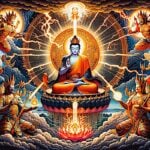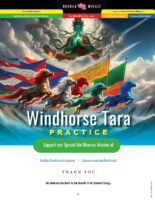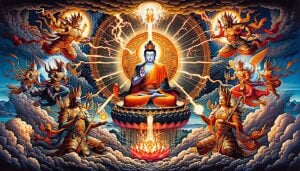Assu Sutta: Tears of suffering in Samsara greater than the “ocean of the four great oceans.” Buddha Sutra
In the Assa Sutta — apparently one of the saddest of the teachings — Buddha teaches us to drive our mission to escape Samsara by remembering our endless tears through our countless lives. (Full Sutta below in English.)
Samsara is endless, suffering seems endless, our tears through the endless cycle of suffering is “greater than the water of the four oceans.” In beginningless time, we have wept over the loss of our mothers, over and over, countless times.
Buddha, in the Assu Sutta, said,
“This is the greater: the tears you have shed while transmigrating and wandering this long, long time — crying and weeping from being joined with what is displeasing, being separated from what is pleasing — not the water in the four great oceans.”
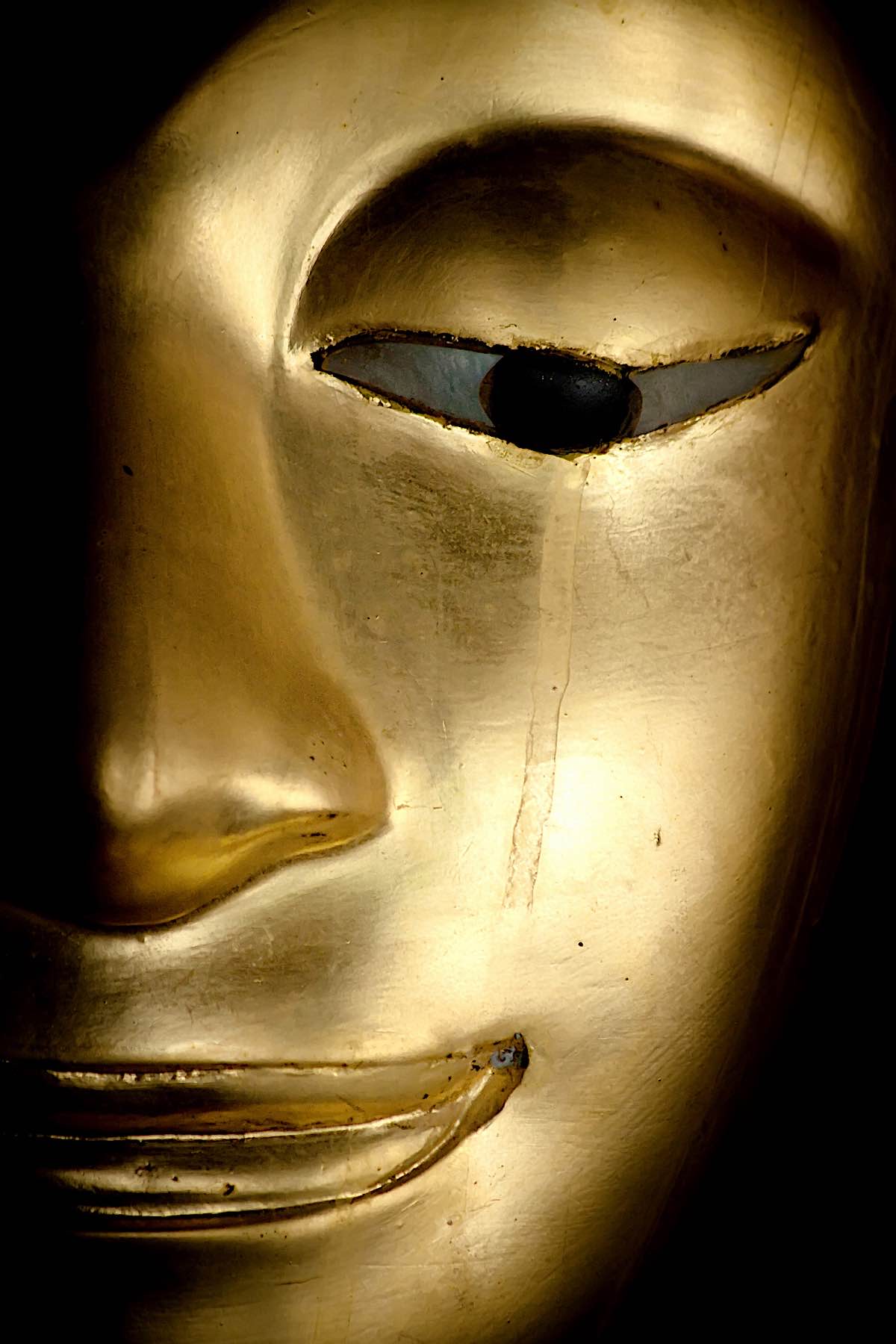
Why such seemingly depressing teaching? Buddha explains,
“Why is that? From an inconstruable beginning comes transmigration. A beginning point is not evident, though beings hindered by ignorance and fettered by craving are transmigrating and wandering on. Long have you thus experienced stress, experienced pain, experienced loss, swelling the cemeteries — enough to become disenchanted with all fabricated things, enough to become dispassionate, enough to be released.”
Meditating on suffering, death and sadness are the ways we remind ourselves to start practicing today, to read the Sutras and teachings today, to listen to our teachers today — to take steps to alleviate the suffering today. Not tomorrow. There have been enough tears.
While countless other Suttas/Sutras from the Buddha are filled with hope and sage advice, topics such as “tears” and “death” are often not emphasized.
Relieving the suffering of all sentient beings is our mission. Nothing gives us the drive to achieve that mission that remembering our endless tears.
In the story of Buddha’s life, it was the four sights that launched him on his mission to alleviate our suffering: old age, sickness, a corpse, and a wandering homeless ascetic. These four sights were Buddha’s “turning point.”
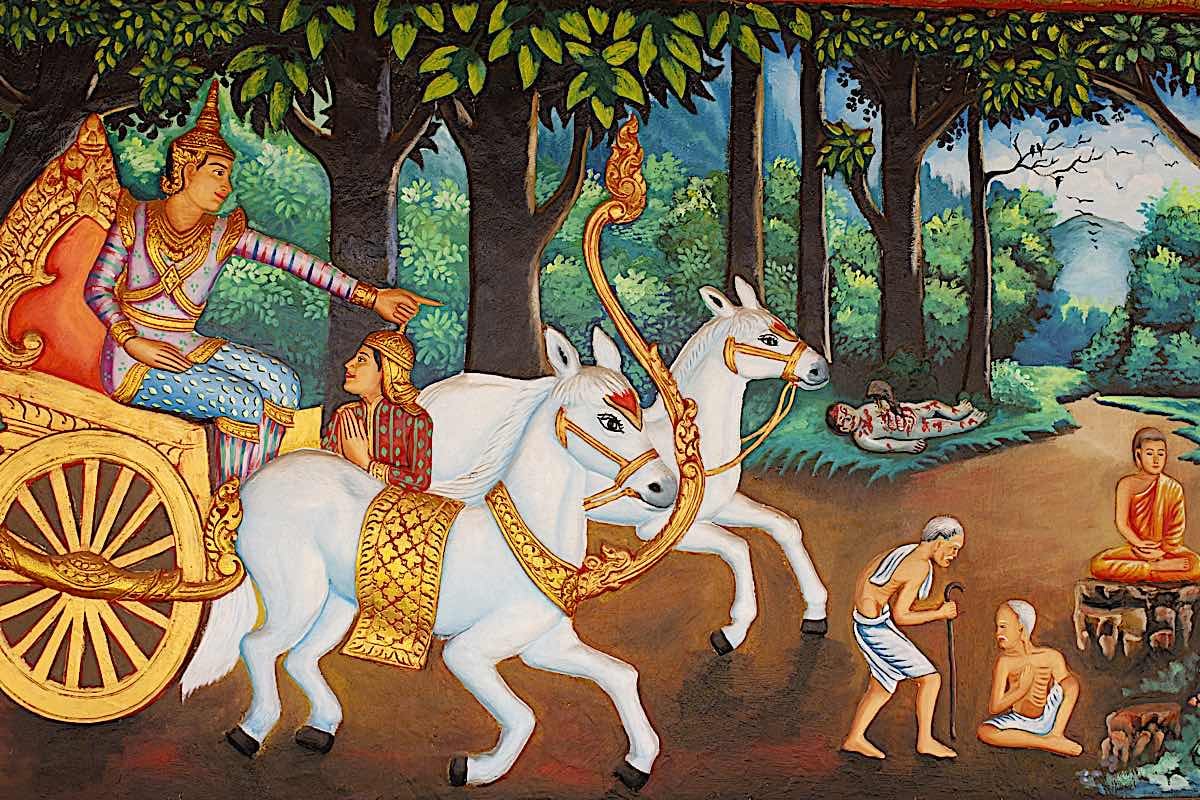
In Assu Sutta, aptly translated as “Tears” Buddha asks us to remember our tears to help us create our own “turning point.” Buddha taught us to remember the tears, to embrace them, as a motivation to practice. He taught us how to escape samsara, and more importantly, how to help all sentient beings escape samsara.
Remember the tears…
Assu Sutta
Tears
Translated from the Pali by Thanissaro Bhikkhu
At Savatthi. There the Blessed One said: “From an inconstruable beginning comes transmigration. A beginning point is not evident, though beings hindered by ignorance and fettered by craving are transmigrating and wandering on. What do you think, monks: Which is greater, the tears you have shed while transmigrating and wandering this long, long time — crying and weeping from being joined with what is displeasing, being separated from what is pleasing — or the water in the four great oceans?”
“As we understand the Dhamma taught to us by the Blessed One, this is the greater: the tears we have shed while transmigrating and wandering this long, long time — crying and weeping from being joined with what is displeasing, being separated from what is pleasing — not the water in the four great oceans.”
“Excellent, monks. Excellent. It is excellent that you thus understand the Dhamma taught by me.
“This is the greater: the tears you have shed while transmigrating and wandering this long, long time — crying and weeping from being joined with what is displeasing, being separated from what is pleasing — not the water in the four great oceans.
“Long have you (repeatedly) experienced the death of a mother. The tears you have shed over the death of a mother while transmigrating and wandering this long, long time — crying and weeping from being joined with what is displeasing, being separated from what is pleasing — are greater than the water in the four great oceans.
“Long have you (repeatedly) experienced the death of a father… the death of a brother… the death of a sister… the death of a son… the death of a daughter… loss with regard to relatives… loss with regard to wealth… loss with regard to disease. The tears you have shed over loss with regard to disease while transmigrating and wandering this long, long time — crying and weeping from being joined with what is displeasing, being separated from what is pleasing — are greater than the water in the four great oceans.
“Why is that? From an inconstruable beginning comes transmigration. A beginning point is not evident, though beings hindered by ignorance and fettered by craving are transmigrating and wandering on. Long have you thus experienced stress, experienced pain, experienced loss, swelling the cemeteries — enough to become disenchanted with all fabricated things, enough to become dispassionate, enough to be released.”
More articles by this author
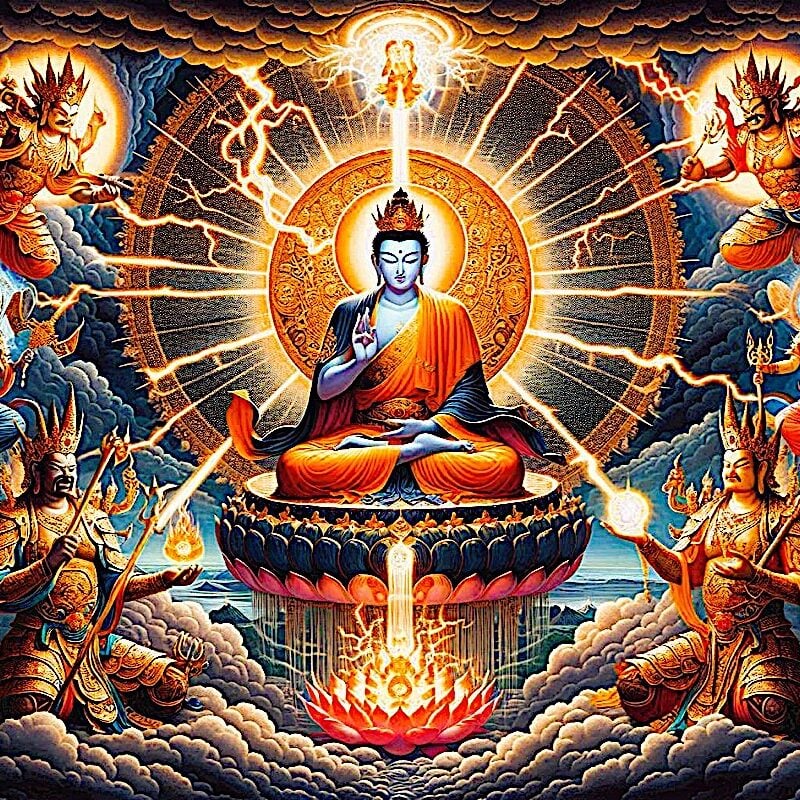
Protection from all Harm, Natural Disaster, Weather, Spirits, Evil, Ghosts, Demons, Obstacles: Golden Light Sutra: Chapter 14
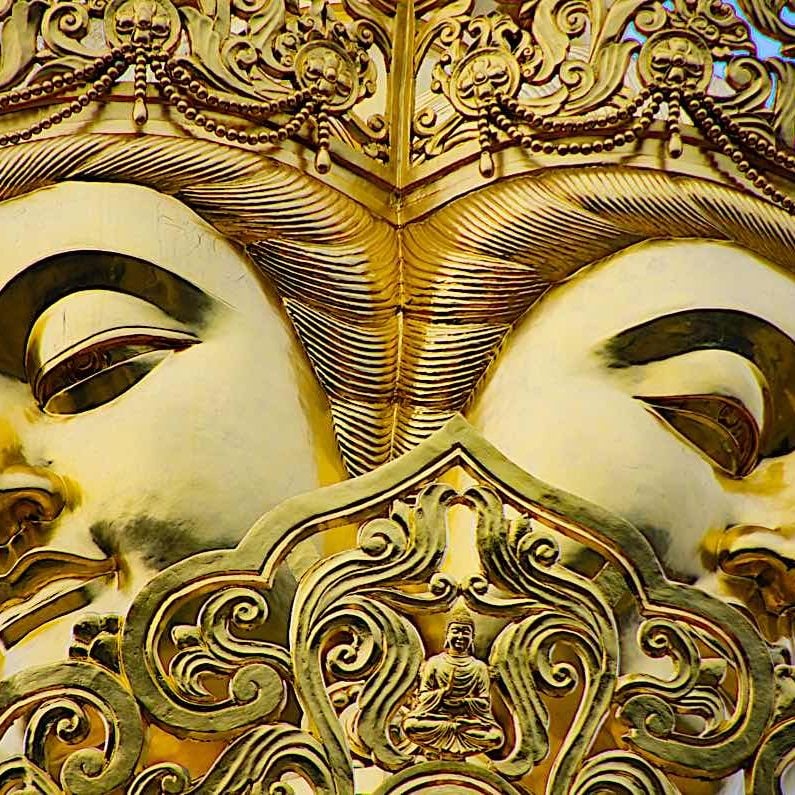
Samantabhadra’s The King of Prayers is the ultimate Buddhist practice how-to and itself a complete practice
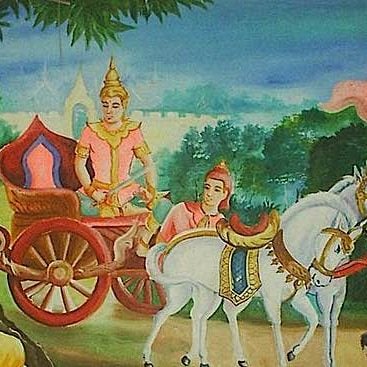
The Five Strengths and Powers or pañcabalā in Buddhism — the qualities conducive to Enlightenment: faith, energy, mindfulness, concentration and wisdom
Search
Latest Features
Please support the "Spread the Dharma" mission as one of our heroic Dharma Supporting Members, or with a one-time donation.
Please Help Support the “Spread the Dharma” Mission!

Be a part of the noble mission as a supporting member or a patron, or a volunteer contributor of content.
The power of Dharma to help sentient beings, in part, lies in ensuring access to Buddha’s precious Dharma — the mission of Buddha Weekly. We can’t do it without you!
A non-profit association since 2007, Buddha Weekly published many feature articles, videos, and, podcasts. Please consider supporting the mission to preserve and “Spread the Dharma." Your support as either a patron or a supporting member helps defray the high costs of producing quality Dharma content. Thank you! Learn more here, or become one of our super karma heroes on Patreon.
Lee Kane
Author | Buddha Weekly
Lee Kane is the editor of Buddha Weekly, since 2007. His main focuses as a writer are mindfulness techniques, meditation, Dharma and Sutra commentaries, Buddhist practices, international perspectives and traditions, Vajrayana, Mahayana, Zen. He also covers various events.
Lee also contributes as a writer to various other online magazines and blogs.






